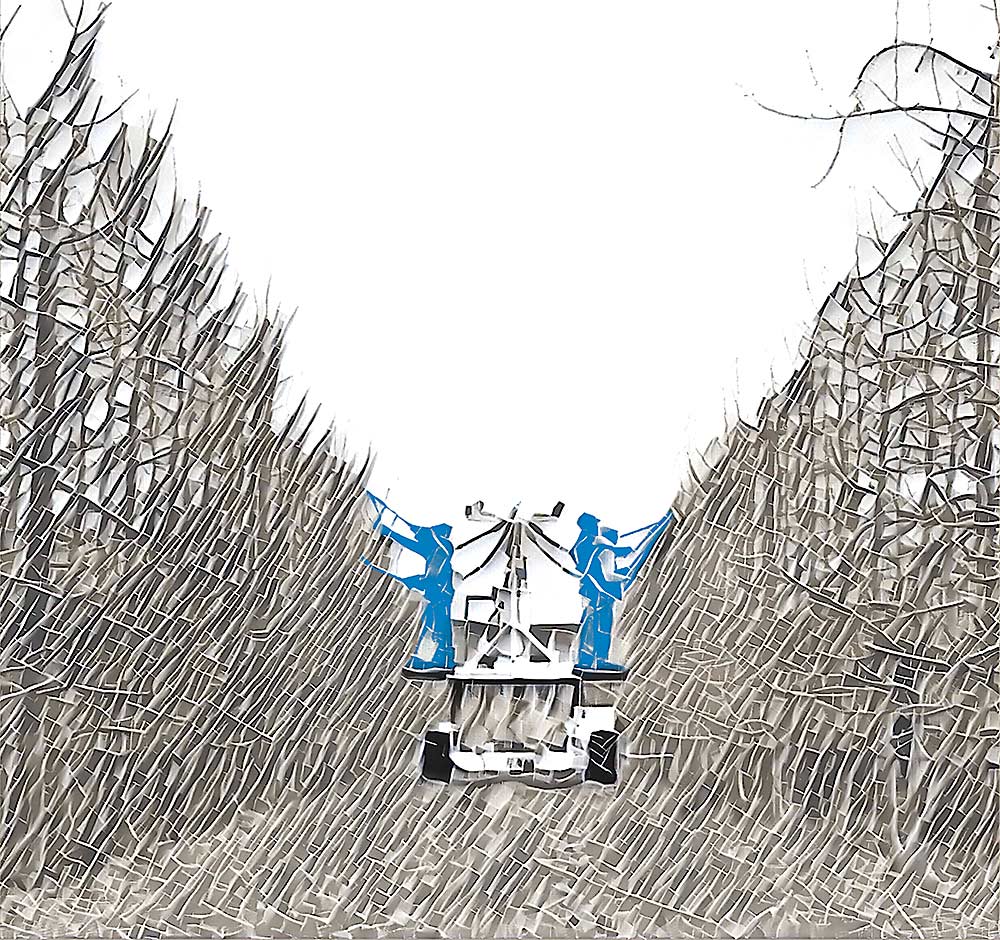
Of all the tree fruit industry’s policy priorities, labor reform has topped the list for years, even as long-term solutions by Congress and proposed regulatory changes to the H-2A guest worker program have been stalled or delayed.

But at any moment, federal regulators or lawmakers could pick up these issues again, and tree fruit industry advocates need to be poised and ready to take advantage of any opening to advocate for the industry’s needs, said Mark Powers and Kate Tynan, the president and senior vice president, respectively, of the Northwest Horticultural Council.
Think of it as though the federal government is on offense, Tynan said, and the industry must be prepared to play defense. The council already plays plenty of offense, advocating at every opportunity for political and regulatory changes growers need, but now the group is bringing in a regulatory ringer to fill a need in Washington, D.C.
The council’s trustees recently approved a plan to contract with agricultural labor lawyer Kristi Boswell to bring additional support to the fruit industry’s efforts. It’s a new line item in the council’s budget, Powers said, approved with “unanimous support from the board to do something new.”

Boswell, now counsel at the firm Alston & Bird, served as a senior advisor to the secretary of the U.S. Department of Agriculture during the Trump administration and has worked on the H-2A program, immigration reform legislation and implementation of the 2018 Farm Bill.
“We hope to incorporate her legal expertise and, frankly, her advocacy expertise to influence change,” Tynan said.
The council is not reducing any of its efforts on labor issues, including working closely with growers to understand challenges, crafting potential solutions, educating regulators about the unique needs of the tree fruit industry, and engaging with lawmakers.
Political reform, such as the Farm Workforce Modernization Act, gets a lot of attention, but rulemaking for the H-2A program represents an area where the tree fruit industry needs to be in the room, and Boswell has more experience working with those career regulators, Powers said.

“She has credibility with a lot of folks, and she’s in conversations that we’re not in,” he said.
Boswell agreed. “My value is really in that regulatory piece, trying to get those tweaks in the program that don’t take an act of Congress,” she said.
NHC and the U.S. Apple Association, along with growers who fly to the U.S. capital to aid in educating and lobbying lawmakers, already do a great job highlighting the industry’s concerns, she said. But the complex regulatory process that governs changes to the H-2A program is more difficult for growers to engage with, beyond submitting public comments.
Boswell cited two key issues:
—The H-2A reforms proposed by the Trump administration in 2019, which Boswell worked closely on but that “unfortunately, didn’t quite get across the finish line” before the Biden administration took office. As is common, the new administration retracted the proposed rule for additional review; it could just finalize it (with or without changes) or release it again for public comment.
—The wage rule that was finalized in 2019 (after being pulled out of the larger rule, to expedite the process) and subsequently challenged in court. Following court orders, the Biden administration reissued a proposal this winter.
“We could see two new regulatory final rules coming out from the DOL, or they could combine it back into one final rule,” Boswell said. While the public comment periods have concluded, the U.S. Department of Labor review continues, and it’s important to ensure industry concerns continue to be part of the agency’s decision making, she said.
When the rules themselves are finalized, there are still a lot of implementation questions left for the agency staff to interpret, Tynan said. That’s another place where Boswell plans to engage on behalf of the industry.
Other issues on Boswell’s radar include state prevailing wage surveys. “There may be room to work with DOL on how those surveys are being conducted,” she said.
And in June, the Biden administration announced an agreement to develop a pilot program allowing H-2A employers to contract with workers from Central America. The goals of the program are to address agricultural labor shortages, reduce irregular migration by expanding legal pathways, and improve working conditions for farmworkers, according to a news release from the USDA. As part of the third goal, USDA intends to partner with United Farm Workers of America to study the challenges facing farmworkers. Boswell encouraged the tree fruit industry to engage with this program as well.
Lastly, there are always opportunities to streamline the administration of the H-2A program, such as better data sharing between the agencies involved, Boswell said. She plans to keep an eye on the day-to-day administration of the program, looking for trends or concerns for the tree fruit industry, and will relay any to Powers and Tynan.
“This issue is challenging — it’s challenging politically, it’s challenging on the ground — but it’s the top issue among tree fruit growers. Farm Bill programs are no use if you can’t harvest your crop,” she said. “We’ll keep fighting the good fight and, hopefully, get some workable reforms to make the program work more efficiently.”
—by Kate Prengaman






Leave A Comment